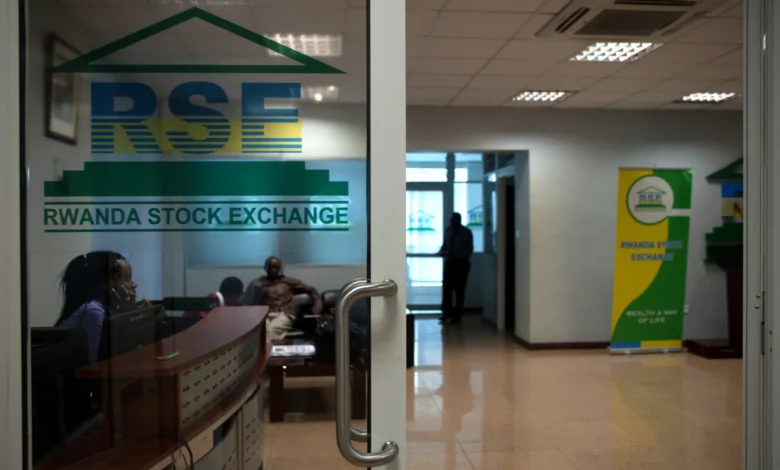
The International Finance Corporation (IFC) has successfully issued a RWF 24 billion (approximately $17 million) bond in Rwanda’s domestic capital market—its first Rwandan franc-denominated onshore bond since 2014.
This eight-year amortizing bond is now listed on the Rwanda Stock Exchange and received strong investor interest, being oversubscribed by 1.75 times.
The bond carries a 10.50% coupon, slightly below the interpolated government yield by about 0.55%. Proceeds from the issuance will fund a key digital infrastructure project in Rwanda. By opting for a local-currency structure, the IFC helps shield its clients from exchange rate volatility, a major risk associated with foreign-denominated borrowing.
The issuance attracted a broad range of institutional investors, including pension funds, insurers, banks, and asset managers. BK Capital and Rand Merchant Bank acted as co-lead managers for the transaction.
This is IFC’s second “Umuganda bond”—a term used for local-currency bonds issued in Rwanda by non-resident entities—further reinforcing its commitment to developing local financial markets.
Also Read: IFC’s Fintech Fund to Work with Metropol for Africa’s Creative Economy
Rwanda’s Finance Minister, Yusuf Murangwa, lauded the move, saying it broadens domestic investment options while enhancing access to long-term local currency financing. His remarks reflect Rwanda’s ongoing push to strengthen its capital markets and reduce reliance on foreign currency loans.
IFC’s strategy in Rwanda aligns with its broader agenda across frontier markets: to deepen local currency capital markets, improve financial resilience, and reduce reliance on external debt. In Rwanda, most private sector lending is still short-term or denominated in foreign currencies, exposing borrowers to currency risk and interest rate volatility.
By introducing a triple-A rated bond into the Rwandan franc market, IFC not only gives institutional investors access to a high-quality local asset but also demonstrates the viability of non-sovereign corporate bonds in the country. The strong oversubscription also points to a growing appetite among local investors for diversified and lower-risk investment products.
The move supports wider reforms led by the IFC and World Bank under the Rwanda Capital Market Development Project. These efforts aim to boost secondary market liquidity and expand the range of private sector debt instruments available locally.
As Rwanda continues to prioritize infrastructure development, fintech expansion, and regional integration, a well-functioning local-currency bond market will be critical in financing long-term growth sustainably.
With this new bond, the IFC sets a benchmark for future private sector issuances, encouraging participation in Rwanda’s capital markets.






hello!,I really like your writing so a lot! percentage we keep up a correspondence extra approximately your post on AOL? I need an expert in this area to solve my problem. Maybe that’s you! Looking ahead to see you.
Those are yours alright! . We at least need to get these people stealing images to start blogging! They probably just did a image search and grabbed them. They look good though!
I really like your writing style, excellent information, appreciate it for posting : D.
**mindvault**
mindvault is a premium cognitive support formula created for adults 45+. It’s thoughtfully designed to help maintain clear thinking
After study a few of the blog posts on your website now, and I truly like your way of blogging. I bookmarked it to my bookmark website list and will be checking back soon. Pls check out my web site as well and let me know what you think.
Thanks for sharing excellent informations. Your web site is very cool. I am impressed by the details that you have on this blog. It reveals how nicely you perceive this subject. Bookmarked this website page, will come back for more articles. You, my friend, ROCK! I found just the information I already searched all over the place and just could not come across. What a great web-site.
Keep up the superb work, I read few blog posts on this website and I think that your web site is really interesting and contains bands of good information.
What’s Happening i am new to this, I stumbled upon this I have found It positively helpful and it has helped me out loads. I hope to contribute & help other users like its helped me. Great job.
I do love the way you have framed this specific problem and it does indeed give me personally some fodder for consideration. On the other hand, from what I have experienced, I just simply hope when other feedback pack on that men and women continue to be on point and don’t get started on a soap box of the news of the day. Anyway, thank you for this exceptional point and even though I do not go along with it in totality, I regard your standpoint.
Wow! Thank you! I always needed to write on my website something like that. Can I include a fragment of your post to my website?
hello there and thanks in your info – I’ve definitely picked up anything new from proper here. I did however experience some technical points the usage of this website, as I experienced to reload the website lots of times prior to I may just get it to load correctly. I were thinking about if your web hosting is OK? Now not that I am complaining, however slow loading cases occasions will often affect your placement in google and can injury your high quality score if ads and ***********|advertising|advertising|advertising and *********** with Adwords. Well I’m adding this RSS to my email and can look out for a lot extra of your respective fascinating content. Make sure you replace this again soon..
hello!,I really like your writing so so much! proportion we keep up a correspondence extra about your post on AOL? I require an expert in this space to solve my problem. May be that’s you! Looking ahead to look you.
My spouse and i have been now contented Chris managed to finish off his web research through the ideas he had in your site. It’s not at all simplistic to just happen to be releasing tips which some people have been making money from. We consider we have the writer to thank because of that. The entire explanations you have made, the simple site menu, the friendships you will make it possible to create – it’s got everything unbelievable, and it is leading our son and us know that this theme is interesting, and that’s incredibly indispensable. Thanks for all the pieces!